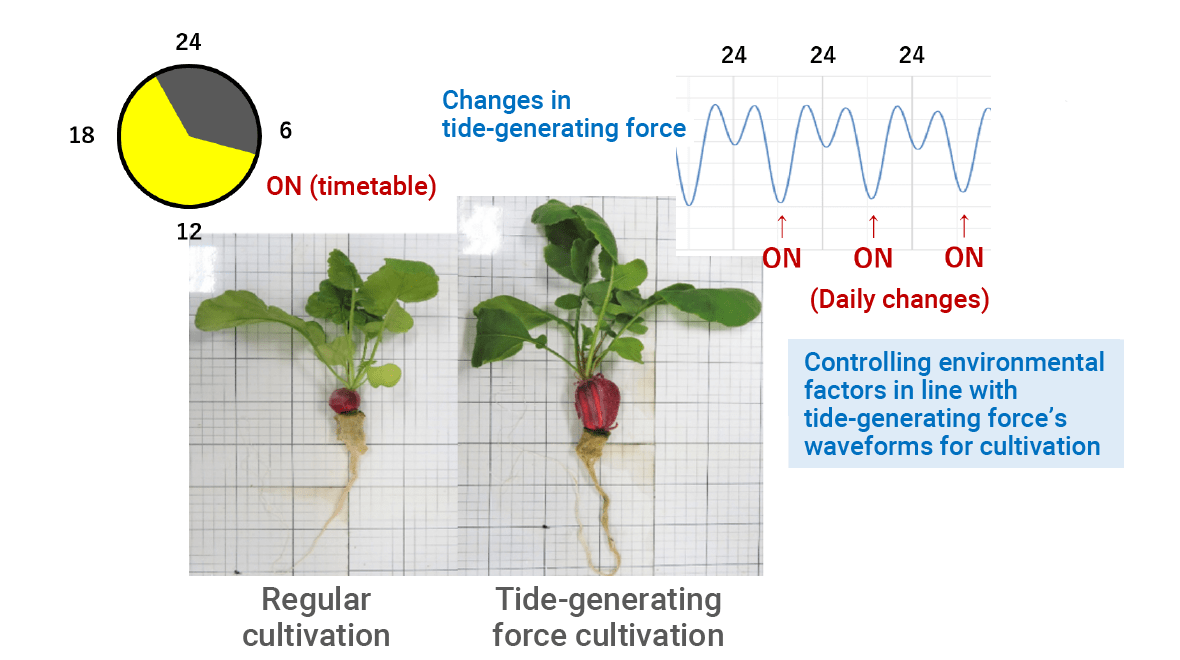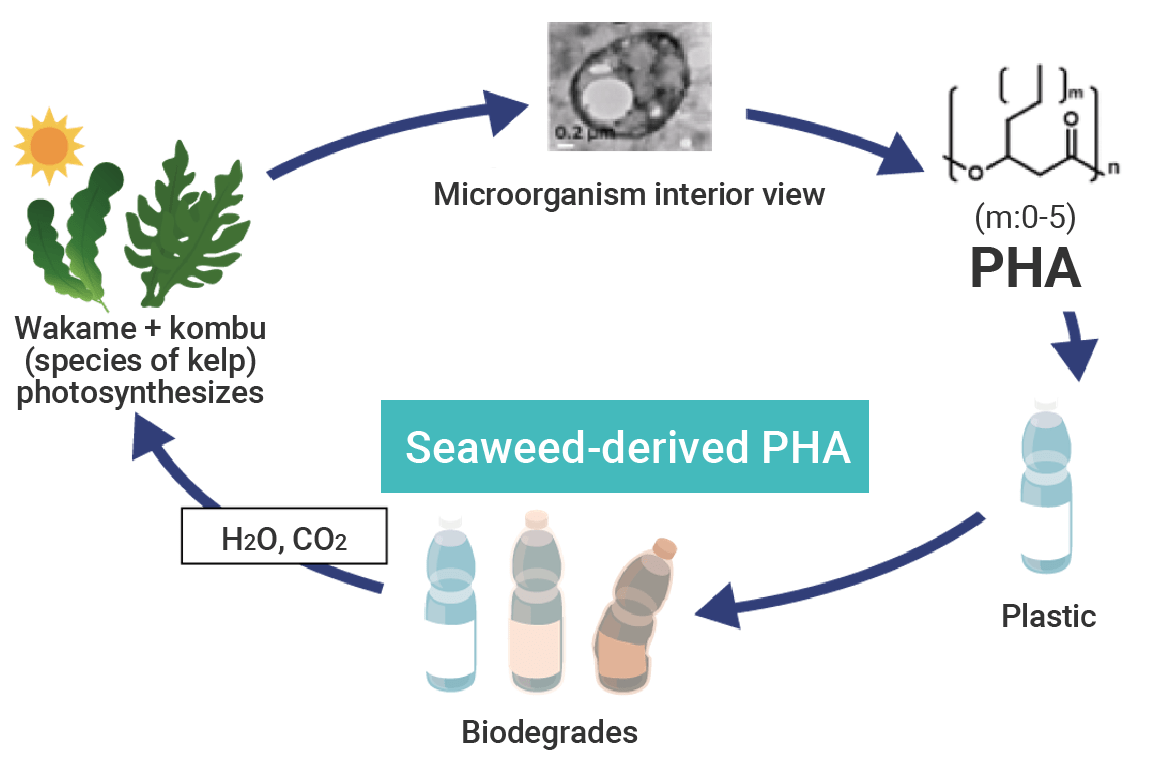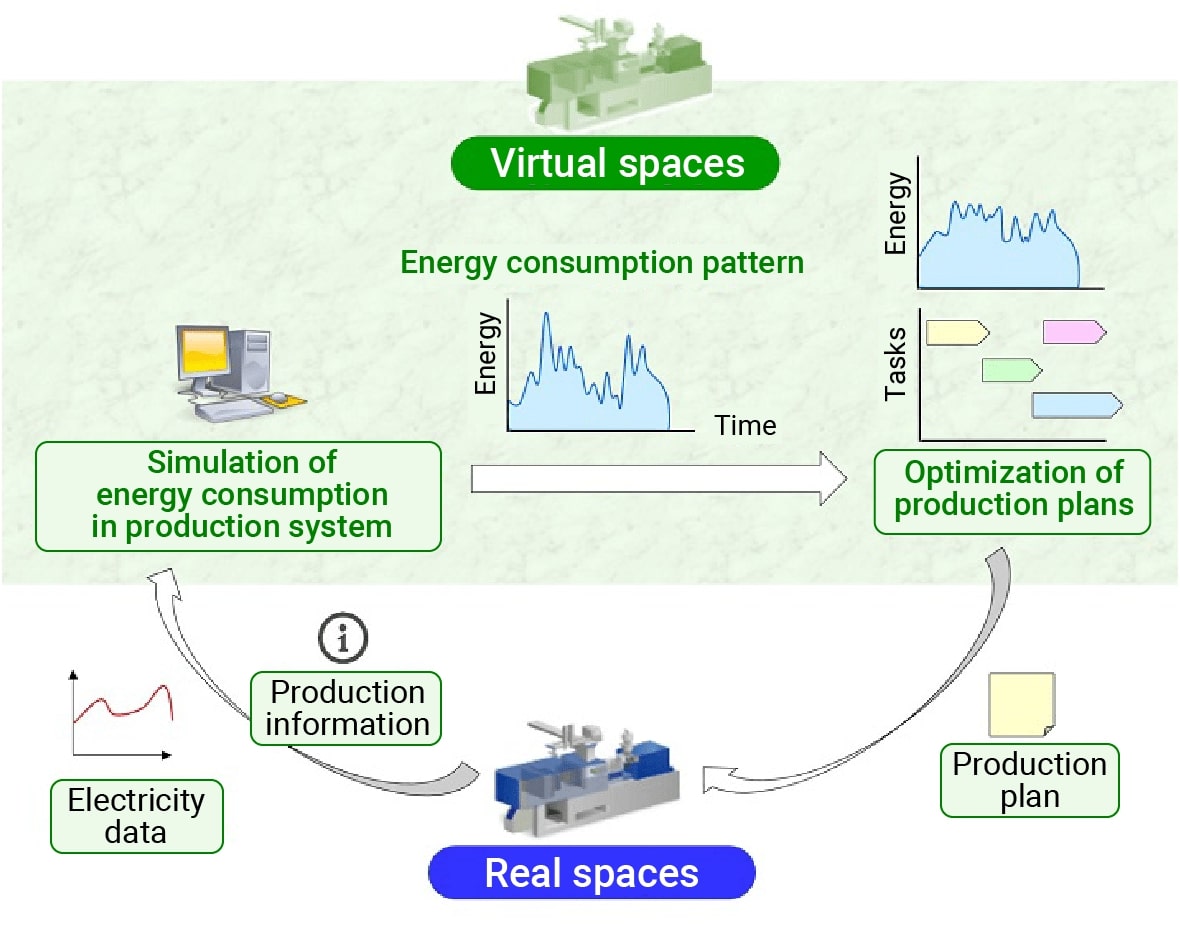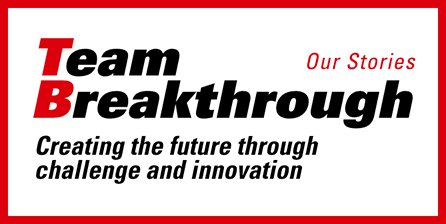Initiatives for Cutting-Edge R&D
Basic Approach
Four important fields of research and development for helping solve societal problems
The Toyota Boshoku group engages in cutting-edge research and development in line with the Principle of Toyoda to “Always be studious and creative, striving to stay ahead of the times.”
Looking to the next one hundred years, we founded the New Value Creation Center in April 2018, and are promoting relevant action with the aim of performing research that contributes positively to society’s future.
In order to realize Toyota Boshoku’s materiality of Safety, Environment and Comfort in the interior spaces of tomorrow, we will continue accelerating our efforts to contribute to society, as well as continue creating new value in the four fields of Biotechnology, People, Energy and Materials.

Accomplishments
Development of agricultural technology that utilizes tide-generating force (Biotechnology)

Tide-generating force is the force produced by the gravitational attraction between the Earth, the moon and the sun which creates changes in the tide’s gravity, as well as its ebb and flow.
Toyota Boshoku has had success in stimulating increased growth in vegetables merely by switching greenhouse lights on and off in sync with the rhythms of the high and low tides. We are anticipating improvements in productivity at plant factories through installation of this system, without the need for new facilities, or increases in energy needs.
As such, we are hoping to bring about wide benefits to society by using this technology to facilitate improvements in health and food production.
Resource recycling system of seaweed-derived biodegradable plastic (PHA) <Materials>

Reducing CO2 emissions on a global scale necessitates a reduction in the use of fossil fuel-derived plastics. Toyota Boshoku is performing joint research with Iwate University into the use of microorganisms to create biodegradable plastics from the waste seaweed, such as wakame and kombu, produced by seaweed aquaculture. We are not only anticipating this to contribute to reduced fossil fuel consumption, but also to help protect marine ecosystems through reduced utilize waste seaweed effectively. In the future we are committed to improving the productivity of microorganism-derived plastics production, as well as continuing development focused on product creation.
Technology for highly efficient energy use in production systems<Energy>

We have built virtual recreations of numerous injection molding lines, and developed simulation technology that coordinates multiple lines to curb peak electricity consumption.
As a result, it is easier to create production plans to manage productivity and peak electricity consumption.
In the future we are aiming to further improve energy efficiency in our production system by developing a system that can visualize wasteful electricity consumption and create plans to improve these issues.
Other cutting-edge research and development topics
■Toyota Boshoku employee awarded the Academic Achievement Award by the Japan Society of Mechanical Engineers (April 23, 2021)
■Release of a scientific paper related to joint research on platinum clusters performed by Toyota Boshoku and Keio University (October 18, 2019)





